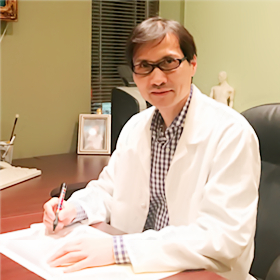Frequently asked questions
- What can Chinese herbal Medicine treat?
- Are Chinese herbs safe to be used?
- How do you take Chinese herbs?
- How much does it cost?
- What is difference between allopathic medicine and Traditional Chinese Medicine?
What can Chinese herbal medicine treat?
Theoretically, Chinese herbal medicine could treat any medical problems, but it is more suitable for management of chronic illness and for patients who do not respond to orthodox treatments. For example, a patient should seek help from Chinese herbal medicine if she or he takes medication every day or has resistance to medications. If you are getting cold more than 4 times a year, you should get help from TCM. You simply write to us or call 514 488 2095 for quick consultation, and our experience practitioner will honestly advise you if he can help you.
Are Chinese herbs safe to be used?
Certainly. Chinese herbs have been widely used in China for thousands of years. It is very safe to use Chinese herbs if they are prescribed by a licensed doctor of Traditional Chinese Medicine. Traditionally, Chinese herbs are prescribed in the mixture of different raw herbs, and are brewed by patients themselves. To date, Chinese herbs are readily available in packaged patent formula, pills, powders, tea or liquid extracts.
There are some ''toxic" Chinese herbs among thousands of Chinese herbs. Those herbs have been processed and detoxed in manufactory and safe to be used if they are used properly. For example, Ma Huang, a Chinese herb, is prescribed for treating asthma and cold. It contains ephedrine that produces adrenaline-like effects. Some patients use Ma Huang for years for losing weight and have developed heart problem. It is the typical case of misuse of the herb (in terms of the length of the used) rather than the problem of herb itself.
How do you take Chinese herbs?
Traditionally, raw Chinese herbs are mixed by a practitioner, and brewed by a patient at home. To date, Chinese herbs are readily available in patented pills, concentrated powders, teas or liquid extracts. These forms of Chinese herbs are getting popular because they are easy to be taken, but are more expensive than raw herbs.
How much does it cost?
It varies based on your health issue, kinds of herbs used and dosage. Average cost for 1 week of raw herbal supply will cost from $30 to $70, however, patented herbal pills could be less expensive. The consultation fee is covered by some group or private insurance under category of naturopathy.
What is difference between allopathic medicine and traditional Chinese medicine?
While Western medicine may heroically rescue you, traditional Chinese medicine focuses on re-establishing functional harmony in order to restore your health to your body and mind. The key benefit of traditional Chinese medicine is prevention.
| Comparison | West medicine | Traditional Chinese medicine |
|---|---|---|
| Features | Evidence-based science Solution for biological abnormality Invasive intervention |
Health-based science Solution for imbalance Non-invasive intervention |
| Diagnosis | Biological test Microscopy Modern technology Surgery |
Functional changes Subjective observation and palpation Emotional changes Diet evaluation Environmental changes Climate and seasonal changes |
| Treatment | Chemical compounds Surgery Supplementary therapies such as physical and occupational therapies, psychotherapy |
Chinese herbs Minor surgery Acupuncture Chinese manipulation (Tuina) Qi-Kong (Chinese meditation) Tai Ji Quan (Chinese exercise) |
| Cons & Pros | Pros: Precise diagnosis Better control of acute infection Quicker relief of symptoms Emergency Necessary surgery Cons: Poor strategy of prevention Less effective treatment for chronic diseases Negligence of etiology such as lifestyle, nutrition, social factors Severe side effects |
Pros: Better strategy of Prevention Holistic approach Etiology-aware treatment plan effective treatment for chronic diseases Minimal side effects Cons: Lack of microscopic diagnosis lack of scientific evidences |
Diagnosis
Both EBM and TCM have common philosophy in diagnosis: finding traits of a health problem or a disease. However, they differ in many ways and levels. EBM recognizes the existence of a health problem based on possible biochemical and mechanical changes and
existence of virus or bacteria. It understands the problem at cellular and molecular levels. If there is no evidence of those changes, there is no disease.
This approach is more precise but is more static view of knowing a problem,
since it ignores the developmental process of a health problem in which people
are disease-free but feel sick.
Traditional Chinese medicine acts on balance concept: a health problem is the result of inter-system imbalance. It is able to detect very mild imbalance and
correct it at earlier stage. This approach is especially important for us to prevent some minor problems from becoming serious illness.
Treatments
Modern medicine is mainstream medicine and helps manage your health
crisis well. Many research and studies lead to the cure of many human
diseases. However, it is still inadequate to deal with chronic illness. The availability of treatment for many known
diseases is limited. One of huge problems is severe side effects of chemical
medications. In general, short-term use of chemical medications have much
less and reversible side effects, but the long-term use of them cause many
serious health issues. Moreover, medications are seldom able to reverse the
pathological process of many disease.
TCM has gained great popularity over past 4 decades due to its efficacy, mild side effects and holistic approach. Unlike EBM, TCM treats a patient as whole person by integrating emotion, environmental changes and lifestyle into treatment plan. This holistic approach helps the practitioner address the root of a health problem rather than clinical symptoms only. TCM develops its own diagnostic techniques to detect early signs of a health issue, and intervenes in early stage of a health problem.


